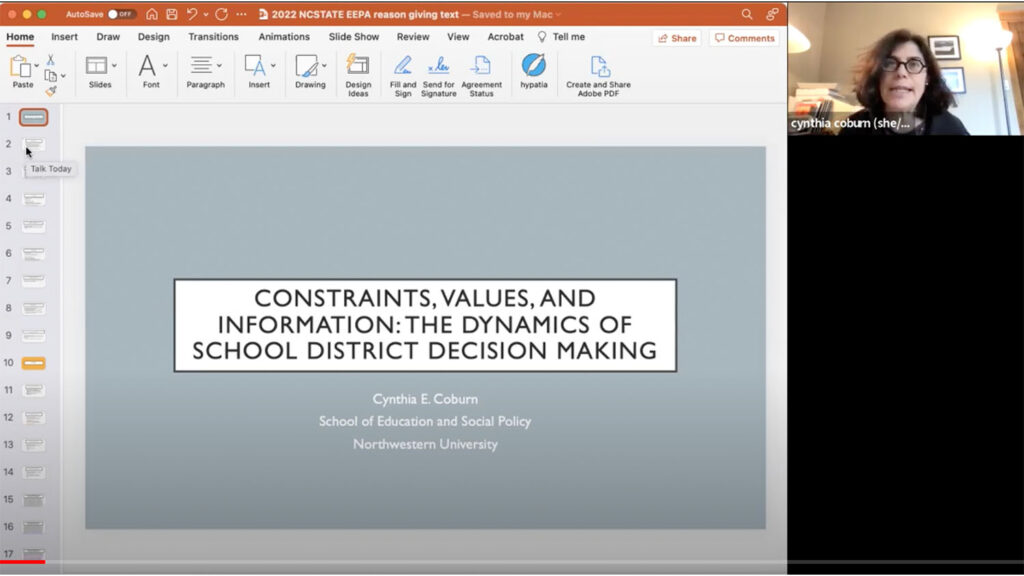EEPA Speaker Series

The Educational Evaluation and Policy Analysis (EEPA) Speaker Series seeks to foster an interest in education policy research by inviting some of the nation’s leading scholars to present critically important and high-impact research and to engage in discussions with attendees.
Meet our Spring 2023 speakers
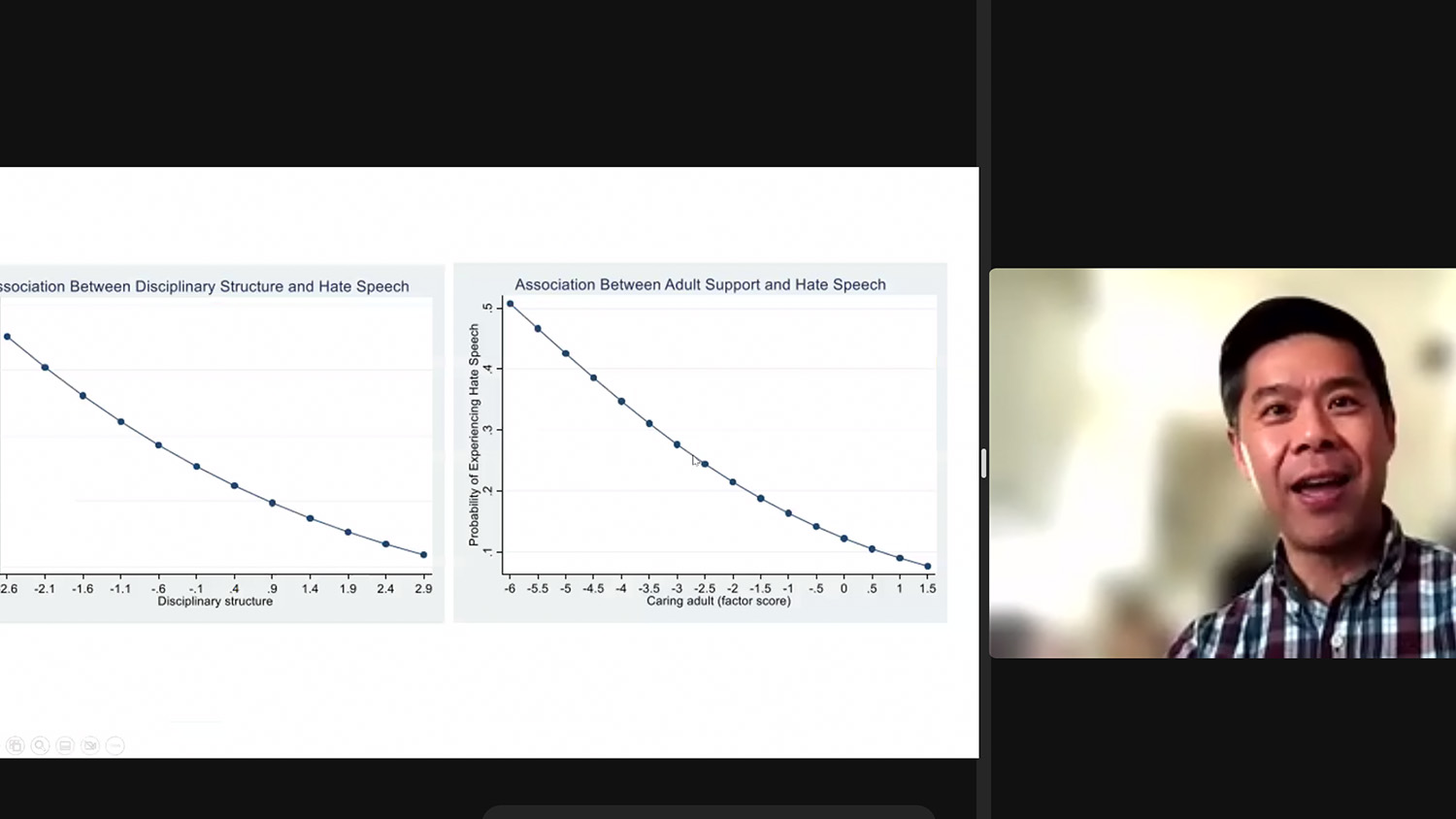
Learn more about the Spring 2023 Speaker Series
Julie Marsh on “Democratic Engagement in Education Reform”
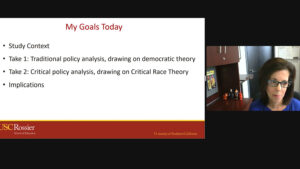
In 2013, California Governor Jerry Brown signed into law the Local Control Funding Formula (LCFF) with a clear mandate for democratic involvement in district goal setting and budgeting. All school districts were expected to organize “meaningful engagement” of key stakeholders, including parents, students, educators, and the broader community, in developing and reviewing local plans that detail annual goals, funding allocations, and improvement strategies – plans ultimately approved by elected school boards. In this presentation, I will examine the implementation of this statewide stakeholder engagement mandate through two distinct lenses. The first analysis draws on democratic theory to investigate policy implementation over a three-year period. Building on earlier research (Marsh & Hall, 2018; Hall, Marsh & Daramola, forthcoming) and based on interview data from 27 districts and a statewide representative survey of superintendents, we find that low levels of participation, particularly from historically marginalized groups, and limited opportunities for cross-stakeholder, two-way communication about broad priorities raise questions about the democratic nature of LCFF engagement and the efficacy of local engagement as a mechanism of change. The second analysis draws on critical race theory to explore how race and racism shaped policy implementation in seven school districts (Daramola, Marsh & Allbright, 2022). Our findings suggest that, without careful attention to racial power and privilege, the implementation of community engagement policies may promote racism in practice, highlighting the need for culturally responsive approaches to engagement. Ultimately this talk aims to illustrate both the evolution of a policy implementation study over time and contrasting traditional and more critical approaches to policy analysis.
Travis Bristol on Developing and Retaining Teachers of Color

“We know that, particularly if you look at the School and Staffing Survey (SAS), that all teachers say that they leave because of their principals, right? Teachers leave their principals, not their students. But because we concentrate teachers of color and Black teachers, in particular, in the most challenging schools and most under resourced schools, with some of the most novice principals, and the working conditions in those schools are so unfavorable, that that leads to those teachers — teachers of color, Black teachers in particular — leaving at a higher rate, right? So it’s not necessarily something about the black teachers themselves.”
Kevin Gee: “When Students Feel Like They Belong, They Feel Like There’s an Adult at School that Cares About Them”
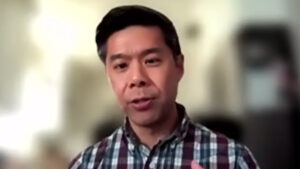
Despite the recent surge in anti-AAPI hate across the United States, the bullying of Asian American youth has remained a persistent and pervasive problem across our nation’s schools. In this talk, Kevin Gee presents new evidence, drawn from large-scale survey data at the national level and the state of California that reveals patterns of school bullying and hate speech against Asian American youth. Data from California will reveal particularly striking patterns across time from 2015 to 2021, a period capturing unprecedented societal disruptions due to the pandemic that coupled with the rise in anti-AAPI hate. He also sheds new light on the experiences of Asian American subgroups, providing a more nuanced picture that helps counter the monolithic model minority myth. Finally, he presents critical evidence of how school climate—the way that schools make students feel physically and emotionally safe at school—can help prevent incidents of bullying and hate speech against Asian American youth.
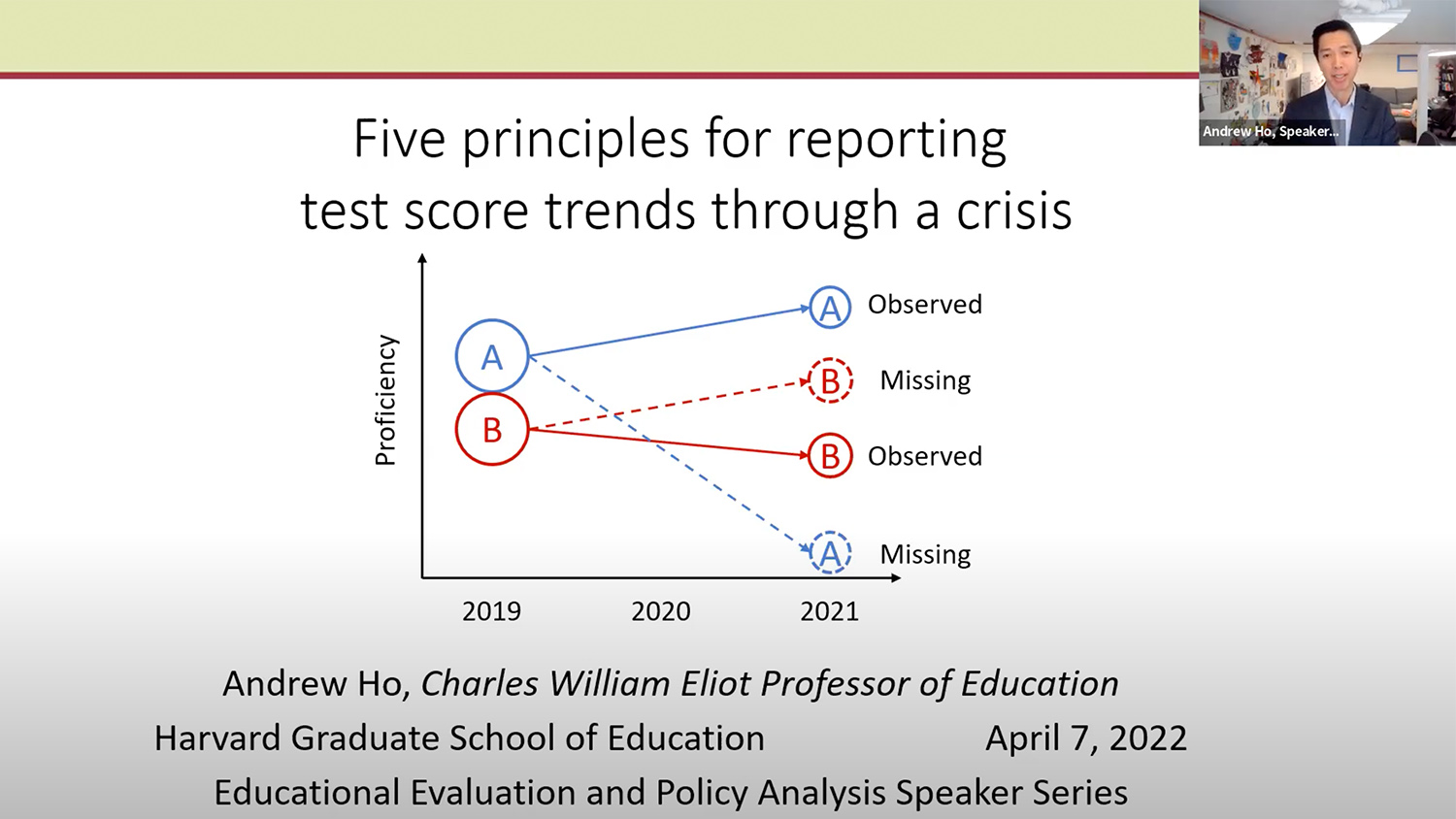
Watch the Spring 2022 EEPA Speaker Series
Andrew Ho: “Five principles for reporting test score trends through a crisis”
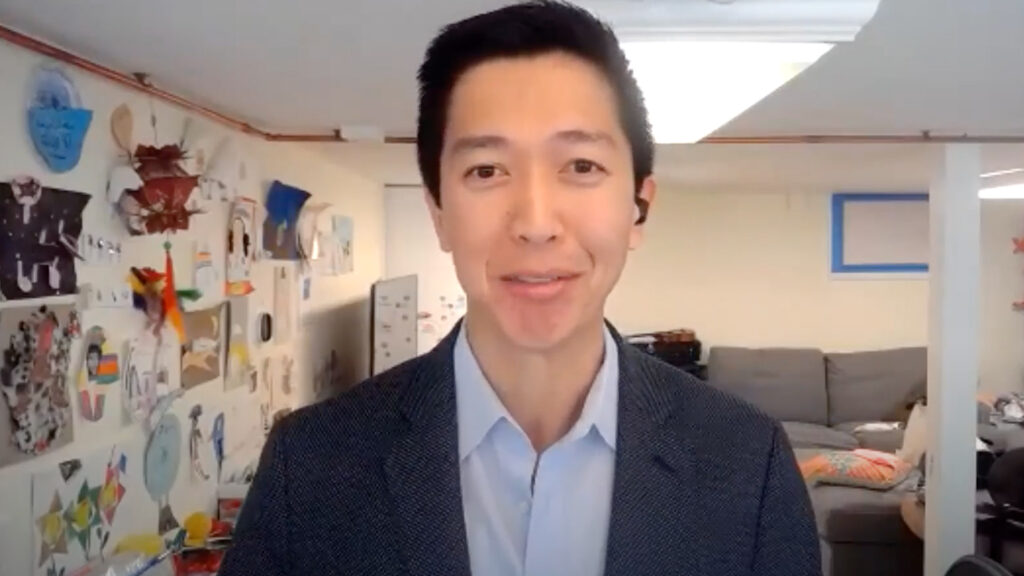
Amid COVID, U.S. state test score collection was cancelled in spring 2020. As states return to census testing, Andrew Ho of Harvard University offers “three metrics” solution for transparent accounting of changes in test populations over time; describes approaches for distinguishing between changes in student knowledge and skills and changes in test engagement and motivation; argues for transparent documentation; explains the the necessity of improving “test equating’ documentation to ensure that measured constructs remain stable; and discusses the importance of contextualized reporting of test scores alongside other trends that remind users that declines are not solely the responsibility of schools and students to address.
Recommended reading:
- Technical memo: Ho, A. D. (2021). Three test-score metrics that all states should report.
- General essay: Ho, A. D. (2021). A smart role for state standardized testing in 2021. FutureEd.
- Optional reading: An, L. S., Ho, A. D., & Davis, L. L. (2022). Disrupted data: Using longitudinal assessment systems to monitor test score quality. Educational Measurement: Issues and Practice, 41(1), 28-32.
- Optional reading: Ho, A. D. (2021). Questions to ask about educational tests.
Cynthia Coburn: “Constraints,Values, and Information: The dynamics of school district decision making”

In her talk, Dr. Coburn spoke on a paper she co-authored in the American Educational Research Journal. Here’s the paper’s abstract: “Using over 350 hours of observational data from district-level meetings, we investigate how leaders support their interpretations of problems and proposed solutions during closed-door negotiations around three policy decisions, and how they invoke race, class, and language in the process. District leaders primarily cite constraints from stakeholders, practical realities, and policies during deliberations. They also draw on beliefs, values, and—to a lesser extent—information like research and data. Race, class, and language discourses were layered with values-based reasons, and most often addressed structural challenges to equity. The balance of attention to these factors depended on the configuration of participants and the nature of the policy decision itself, particularly decision makers’ perception that it would be controversial among certain groups.”
Recommended reading:
- Huguet, A., Coburn, C., Farrell, C., Kim, D. Allen, A. (2021). Constraints,Values, and Information: The dynamics of school district decision making. Published in: American Educational Research Journal. doi: 10.3102/0002831221993824
“The [EEPA Speaker Series] was such a wonderful experience, and I got a lot of helpful information. Being able to speak with scholars from around the country and hear about their work is such an invaluable experience.”
– EEPA Speaker Series Participant
Former Graduate Student
Fall 2022 Speakers
Catherine Truitt, North Carolina State Superintendent of Public Instruction
Dallas ‘Trip’ Stallings, Ph.D., Executive Director, NC Longitudinal Data System
Michael Maher, Ph.D., Deputy State Superintendent, Standards, Accountability, and Research, NC Department of Public Instruction
Ethan Hutt, Ph.D, UNC-Chapel Hill
John Westall, Ph.D., Michigan State University
Rachel White, Ph.D., University of Tennessee at Knoxville
previous EEPA events
NC Educational Leaders Continuing to Advocate for Equity in Schools*
The Effects of Local Industrial Pollution on Students and Schools
The Causes, Consequences, and Correlates of Student Absenteeism
Student Discipline in Public Schools: Inequities, Implications, and the Impact of Reforms*
Women in Research Methods
How do we Calculate Costs in Education?
*Co-sponsored by the Educational Evaluation and Policy Analysis program and the Educational Leadership program



